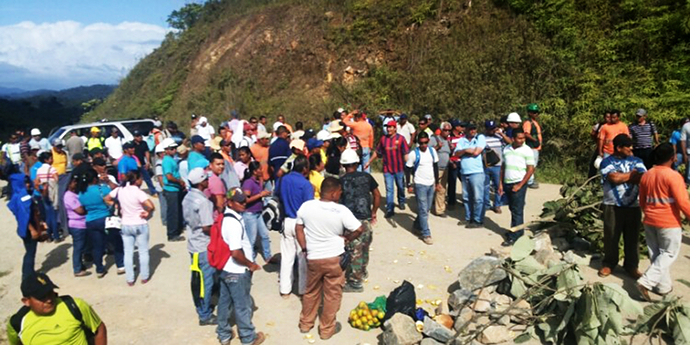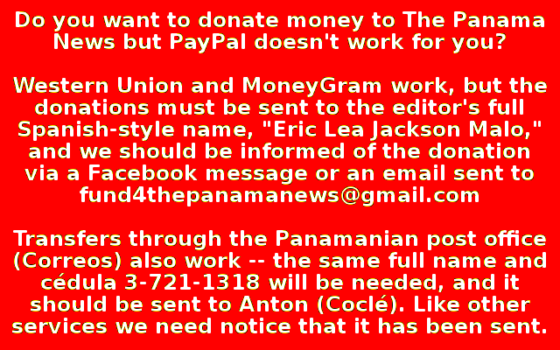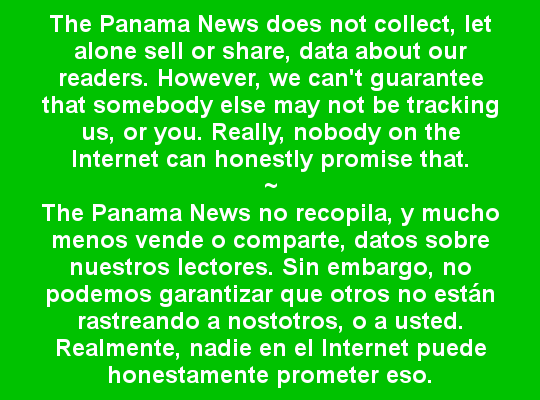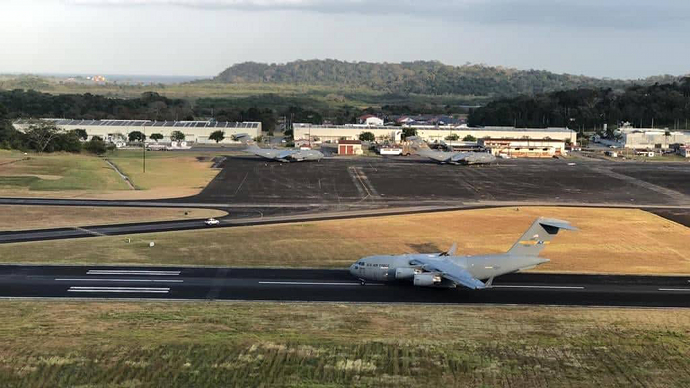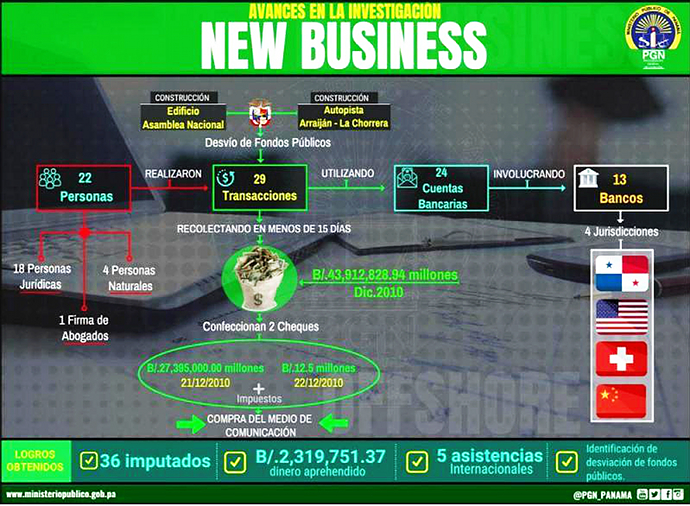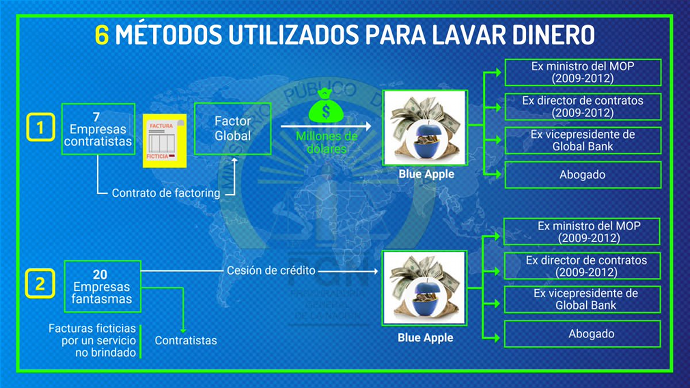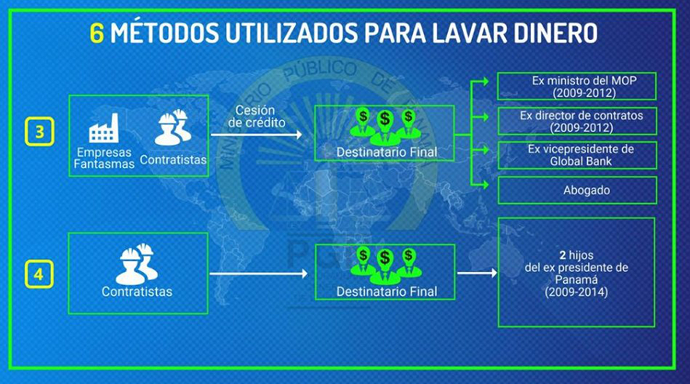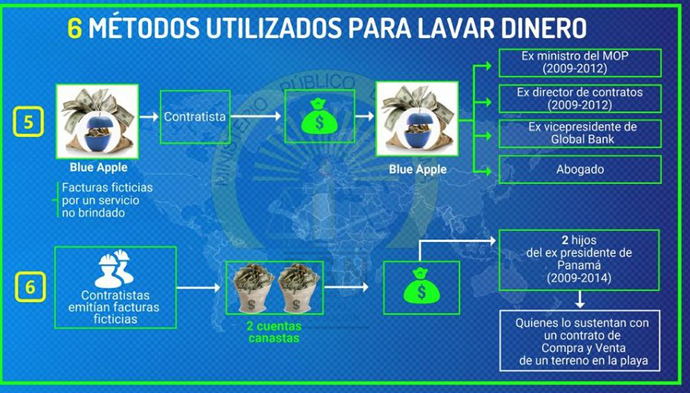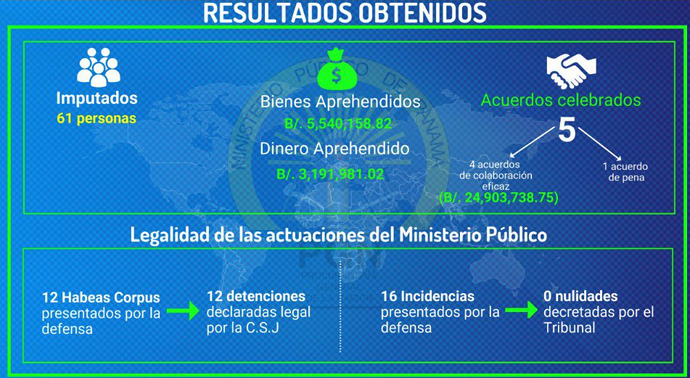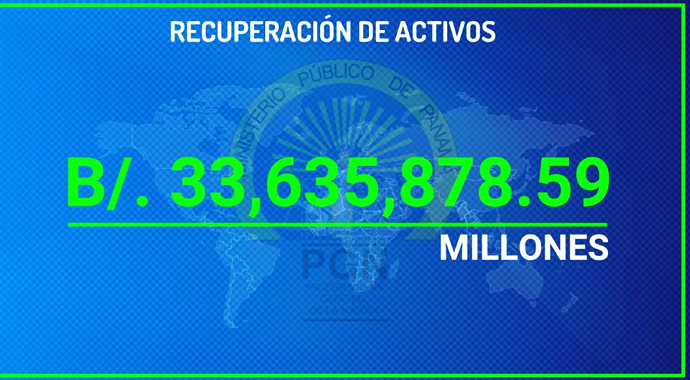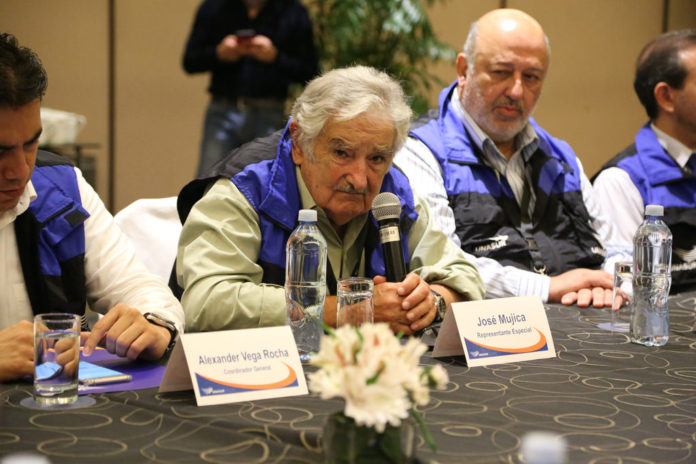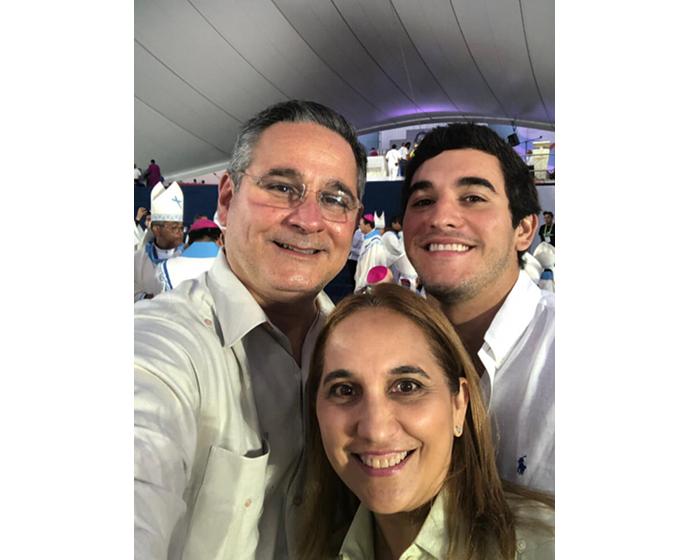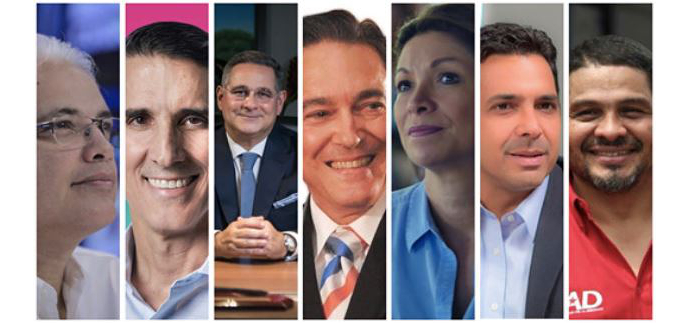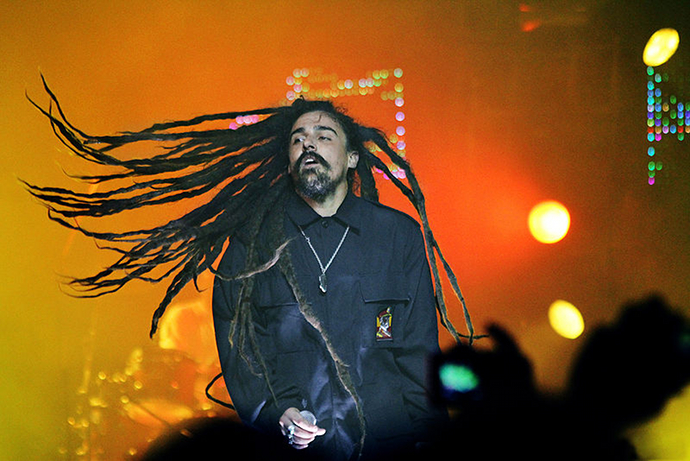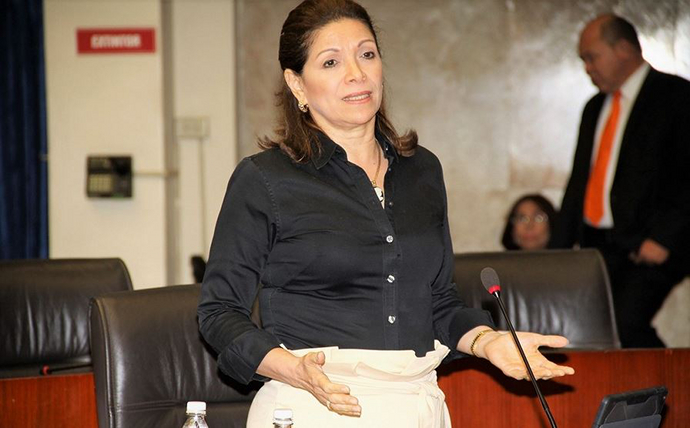April 2014: former miners from Richard Fifer’s and Ricardo Martinelli’s Petaquilla Gold swindle block the road over unpaid wages and Seguro Social contributions. Nowadays what are left behind are toxic holes from which water leaks in the rainy season and dust blows in the dry season, plus many legal and financial messes. Photo by Radio Temblor.
VP picks: Nito goes with gold scheme lawyer, Roux with reporter, FAD with economist
by Eric Jackson
Once upon a time there was an environmental crime, labor law violation and pump and dump insider stock trading swindle known as Petaquilla Gold. Its locus of activity was in the mountains between northern Cocle province and the western part of Colon’s Costa Abajo, but it was registered in Canada as Petaquilla Minerals. At one relatively brief moment it spread to Spain, promising to reopen a gold mine in Andalusia that dates back at least as far as ancient Roman times. Eventually it all fell apart. The Andalusia regional government kicked them out and Canadian stock exchanges de-listed their shares. However, Petaquilla lives on in a plethora of criminal and civil cases in Panamanian courts and prosecutors’ offices and as a stack of unpaid bills.
Now its attorney and legal representative, 35-year-old José Gabriel Carrizo, will be the PRD candidate for vice president. Presidential standard bearer Laurentino “Nito” Cortizo chose him over the weekend, talking about Carrizo’s wonderful family and membership in the next generation of politicians. Pundits noted that Carrizo is from Penonomé, seat of a Cocle province where the PRD is usually weak and which Cortizo would surely like to win this time.
Fifer, dubbed “the father of modern mining in Panama” by a gushy industry publication, is out on bail and facing multiple criminal charges. He has a June 1 trial date for allegedly defrauding the Social Security Fund. Ricardo Martinelli remains in jail — but might soon be granted bail — and has a March trial date on warrantless eavesdropping and theft charges. The former president argues that on procedural and treaty grounds he can’t be tried for an insider trading and money laundering scheme in which worthless Petaquilla stock was hyped as something valuable and sold through a chain of intermediaries, with the proceeds hidden via another chain of intermediaries.
Perhaps the most important thing about the stock swindle and money laundering case is that it’s most probably also a murder case — government securities analyst Vernon Ramos disappeared in 2012 while investigating the case. There is no statute of limitations on such cases and in the event of a procedural bar to prosecution here, by treaty there remains the opportunity to ship the accused off to The Hague to be tried by the International Criminal Court.
By Electoral Tribunal records, Carrizo is one of Nito Cortizo’s main contributors, having delivered more than $90,000 to the PRD candidate’s primary campaign. Due to Electoral Tribunal practices, the record would not distinguish whether Carrizo was a fundraiser and bundler of other people’s donations or whether that was his own money. A 10-year member of the PRD, Carrizo has held no public office. His living has been made in the practice of law — of which being legal representative of Petaquilla was — and in his family’s real estate business. He is a graduate of the USMA law school.
The other VP hopefuls
Meanwhile Cambio Democratico presidential candidate Rómulo Roux has tapped former Telemetro reporter Luis Casís as his running mate. Casís comes from the tradition of journalists who deny having a point of view, is unaffiliated with any political party, has never held any public office and says that he has no politics.
The leftist Broad Front for Democracy — running to advance a cause rather that seriously contending for the presidency — has collectively chosen University of Panama economist Maribel Gordón as the running mate of its presidential candidate, labor leader Saúl Méndez. Gordón has been one of the principal thinkers behind the left wing of the Panamanian labor movement and its CONUSI labor federation. That the militant SUNTRACS construction workers’ union has consistently had a very good tactical sense of what the market will bear in its contract negotiations can in part be attributed to her.
The independents have already chosen their running mates — Ricardo Lambana recruiting former Electoral Tribunal magistrate Guillermo Márquez Amado, Ana Matilde Gómez running with former agriculture minister Jorge Arango, and Marco Ameglio having chosen former diplomat and legislator Mario Boyd Galindo. The Panameñista nominee, José Isabel Blandón, has yet to announce his choice.

